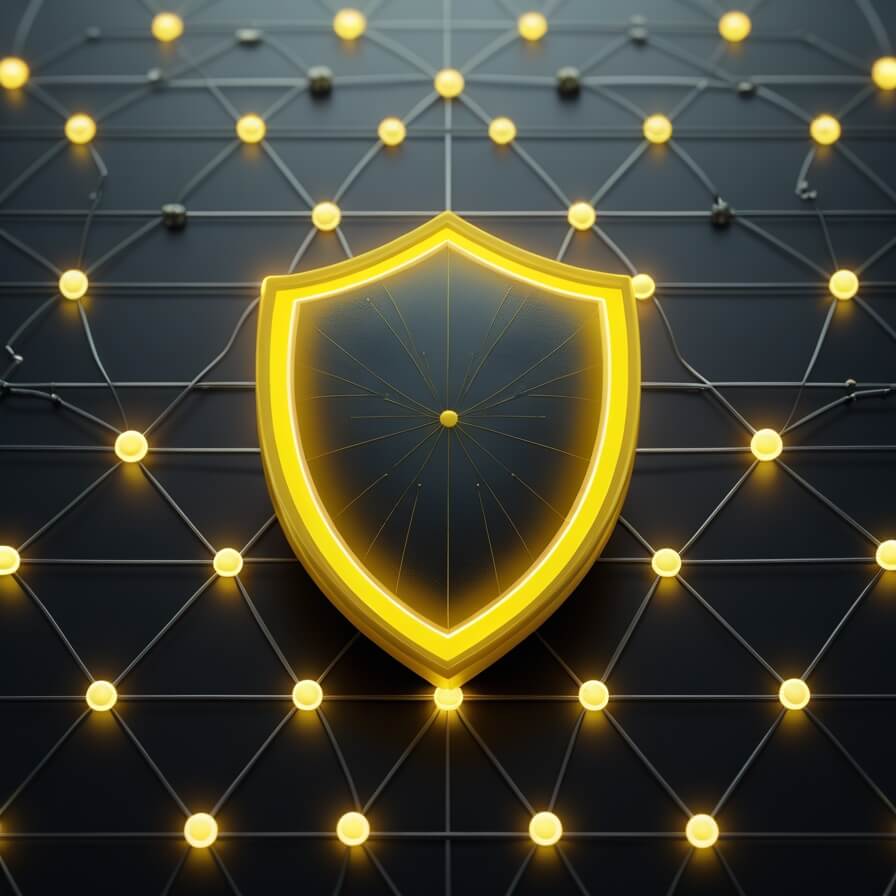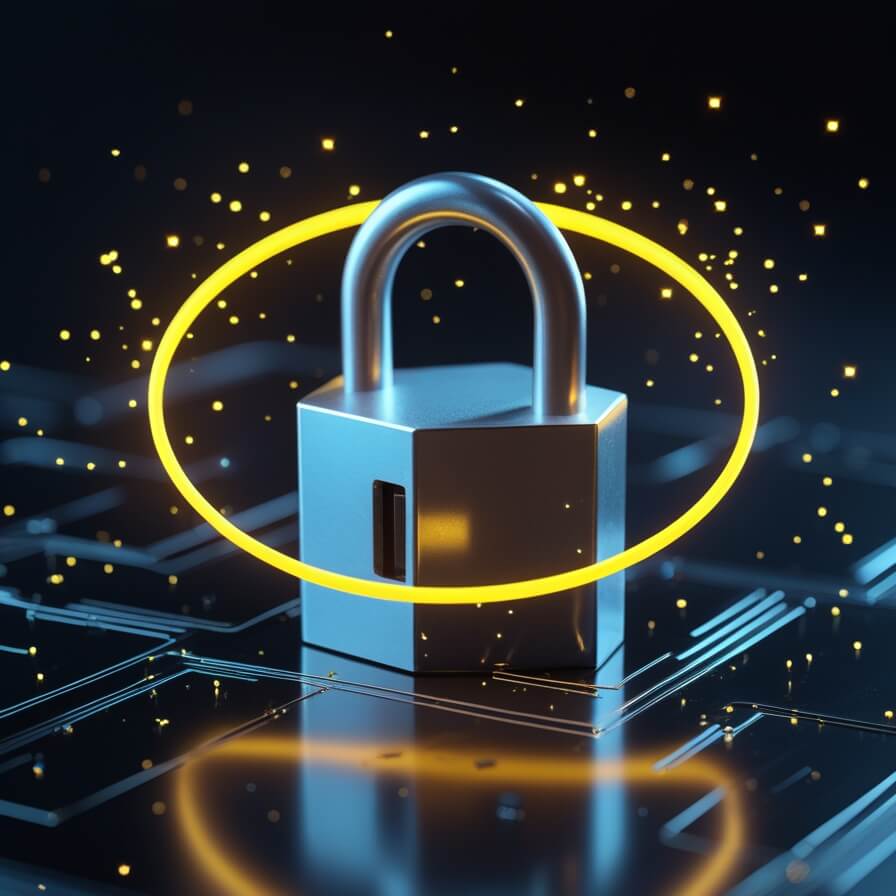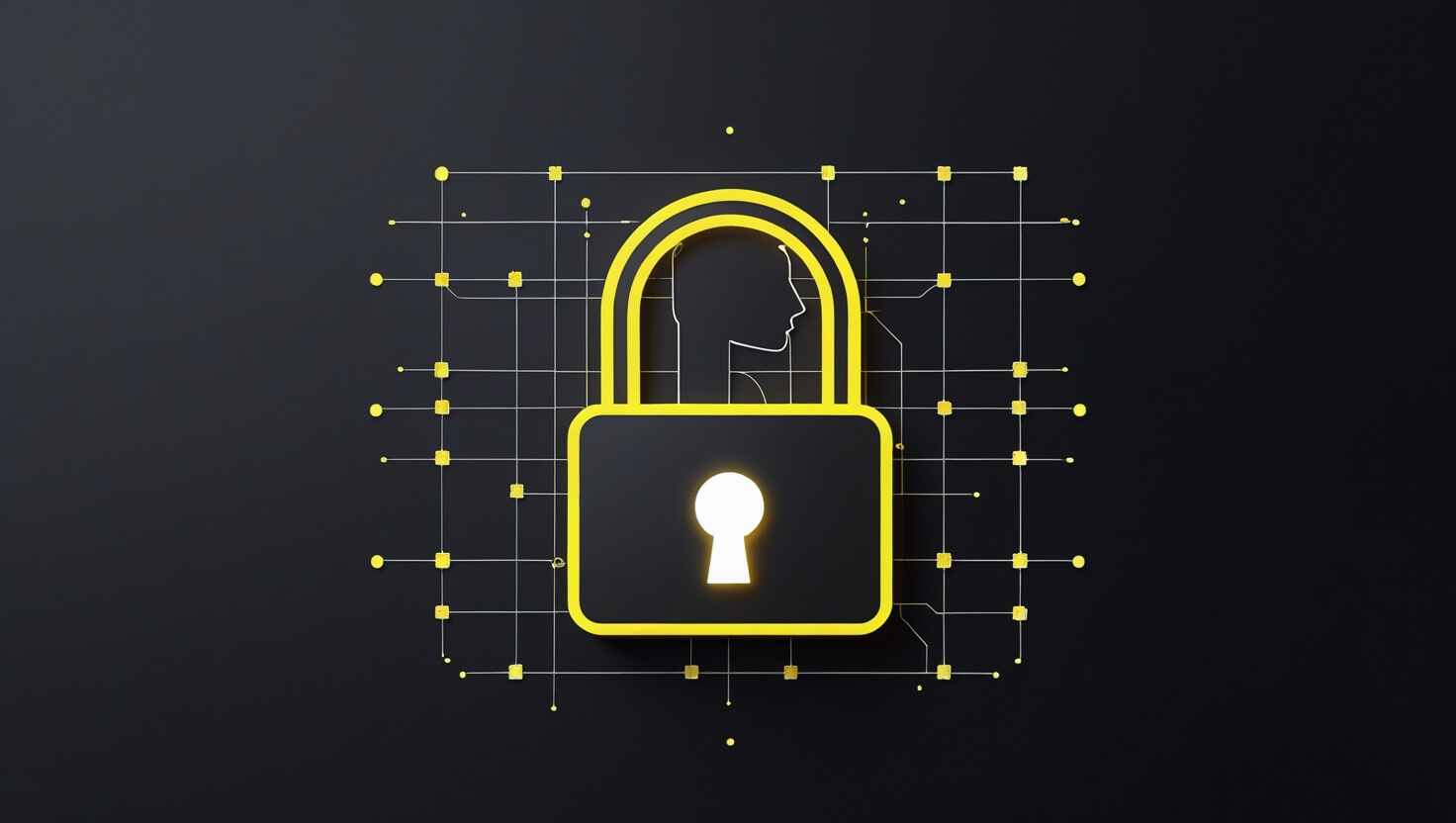This guide explains VPN basics in a simple, beginner-friendly way so anyone can understand when a VPN is useful and how to choose one.
What a VPN Actually Is (In Simple Terms)
A VPN, or Virtual Private Network, is simply a tool that adds an extra layer of privacy to your internet connection. Instead of sending your online traffic directly to websites or apps, a VPN routes it through a secure pathway first. This makes your activity harder to observe and helps keep your data more private, especially when you’re using networks you don’t fully trust.
You can think of it as placing your information inside a sealed envelope rather than sending it as an open postcard. The message stays the same — it’s just better protected on the way.
How VPNs Protect Your Connection
A VPN protects your connection in two main ways, both explained in easy, beginner-friendly terms:
1. It shields your data from others on the same network.
If you’re using public Wi-Fi in a café, airport, or hotel, people on the same network could potentially watch the unprotected traffic that moves across it. A VPN creates a protected pathway so your information isn’t visible to others nearby.
2. It reduces how much your online activity can be linked back to you.
Your internet connection normally broadcasts identifying details in the background. A VPN masks some of these details, making it harder for websites, apps, or advertisers to create a profile of your behavior.
Both of these effects make browsing feel safer, especially in unpredictable environments or when you simply want more privacy.

What a VPN Does NOT Do
It’s just as important to understand what a VPN does not offer. This avoids unrealistic expectations and keeps online safety grounded in reality:
• A VPN does not make you invisible.
Websites can still see that someone visited them, and you still leave normal activity traces like any other internet user.
• A VPN does not replace basic security habits.
You still need strong passwords, updated devices, and caution with unfamiliar links.
• A VPN does not protect what you choose to share.
If you type information into a form or message, a VPN can’t change what you voluntarily submit.
A VPN is most useful as one part of a broader privacy setup, not the only tool you rely on.
When You Might Need a VPN
People use VPNs for many ordinary, everyday reasons. Most situations have nothing to do with anything technical or advanced — just practical moments where a little extra privacy feels more comfortable. A VPN can be helpful when the connection you’re using doesn’t feel secure, when you want fewer companies tracking your browsing habits, or when your work requires a protected way to reach internal tools. VPNs can improve security, but they work differently from anonymity networks used on the dark web.
Staying Safer on Public Wi-Fi
Public Wi-Fi is convenient, but it’s not always designed with strong security in mind. Places like cafés, hotels, and airports typically use shared networks that many people can join at once. A VPN adds a protective layer around your connection so your browsing feels more private while you’re connected to these open hotspots. This can give you peace of mind when checking email, reading news, or handling basic tasks away from home.
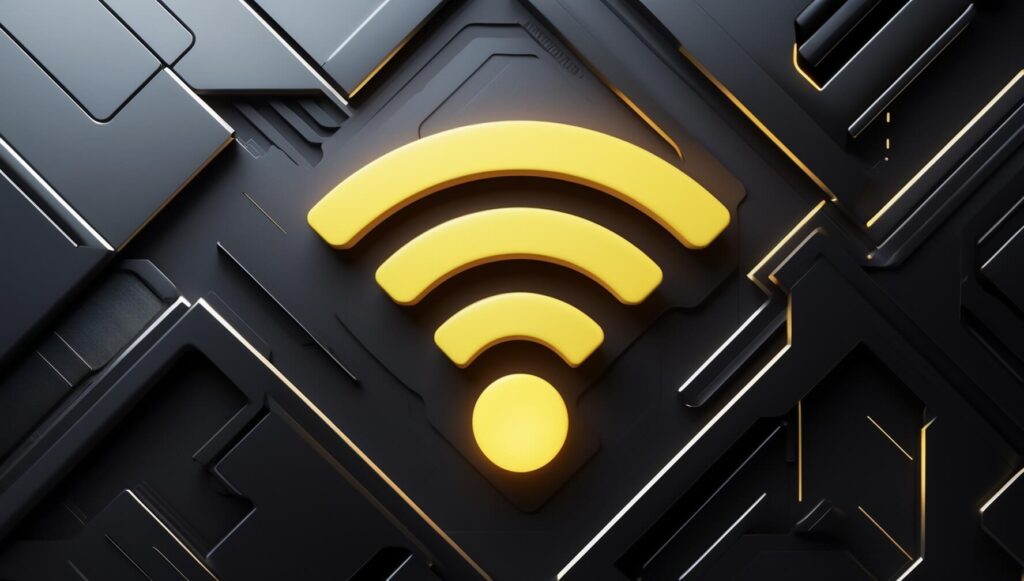
Reducing Online Tracking
Many websites and apps collect data in the background to personalize content or measure how users interact with their platforms. A VPN can help limit how much of this activity is tied directly to your connection. It doesn’t stop tracking entirely, but it makes it harder for different services to build a detailed picture of your browsing history. This can feel reassuring if you prefer a more private online experience.
For additional clarity on how tracking works and how to reduce it, the Mozilla Foundation’s privacy education page offers simple explanations for everyday users.
Working Remotely or Accessing Company Tools
Some workplaces require employees to use a VPN to reach internal resources securely. When you log in via the company’s preferred VPN, it establishes a private connection between your device and the organization’s systems. This helps protect work-related communication and files while you’re away from the office. It’s a simple way to maintain privacy and follow your employer’s security guidelines without needing any technical expertise.
When a VPN May Not Be Necessary
Although VPNs can improve privacy in many everyday situations, there are moments when using one doesn’t provide much added benefit. Understanding when it’s not essential helps you avoid relying on it for more than it can realistically offer. This also builds a healthier, more balanced view of online security rather than assuming every connection needs a VPN at all times.
Secure Home Connections
Most home internet connections already offer a reasonable level of built-in protection. The network is private, the router is under your control, and only trusted devices typically connect to it. In this environment, a VPN isn’t always required for basic browsing, watching videos, or reading news. You still benefit from good habits — like using strong Wi-Fi passwords and keeping your router updated — but you don’t need a VPN running every second to stay safe at home.
HTTPS Websites Already Encrypt Data
Many modern websites use HTTPS, which provides a layer of encryption between your browser and the site you are visiting. This means the information you send or receive isn’t exposed in plain form. While a VPN can still add privacy by masking your connection details, it doesn’t replace the protection that HTTPS already provides. Recognizing this helps you understand that not every online activity requires an additional tool, especially when the site itself is already securing the communication.
How to Choose a Good VPN in 2025
Choosing a VPN can feel overwhelming because many services make big claims or focus on features that sound complicated. In reality, a good VPN is simply one that is clear about how it handles your data, works smoothly across your devices, and provides a stable connection without slowing you down. Thinking about these basics helps you select a service that fits your needs without getting lost in unnecessary details.
Keeping these VPN basics in mind helps you compare services without getting overwhelmed by technical terms.
Look for Clear Privacy Policies
A trustworthy VPN should explain in plain language how it treats your data. The most reliable services are transparent about what information they keep and what they don’t. When the policy is clear and easy to understand, you know exactly what to expect and can feel more confident about the level of privacy you’re receiving. This transparency is often more important than any technical feature.
Strong Encryption and Modern Protocols
Modern VPNs use updated methods to keep your connection protected. You may see names like WireGuard or IKEv2 mentioned, and while the technical details aren’t necessary to understand, it’s good to know that these are widely respected options in the industry. They’re designed to offer a balance of speed and security, which makes the overall experience smoother for everyday users.
Speed & Server Reliability
A VPN should feel almost invisible while you browse. If a service constantly slows down your connection or struggles to keep you connected, it becomes frustrating to use. Look for providers that are known for stable performance and consistent speeds. This ensures that your browsing, streaming, or work-related tasks remain responsive even when your VPN is active.
Apps for All Your Devices
Convenience plays a big role in choosing the right VPN. Good providers offer apps for phones, laptops, tablets, and sometimes even smart TVs. When everything is supported by the same service, it’s easier to stay protected without switching between different tools. A simple, well-designed app can make the entire experience much more user-friendly, especially if you’re not tech-savvy.
Free vs Paid VPNs: What You Should Know
Not all VPNs work the same way, and the difference between free and paid options can be significant. Understanding these differences helps you make a more informed choice, especially if privacy is your main priority.
Free VPN Limitations
Free VPNs may look appealing because they cost nothing, but they often come with compromises that affect both privacy and performance:
- They may display ads or collect usage data to support their business model.
- Speeds can be noticeably slower, especially during busy times.
- Data limits or restricted server access are common, which reduces their usefulness.
- Privacy practices are often less transparent, making it harder to know how your information is handled.
These limitations don’t make free VPNs unsafe by default, but they do highlight why they’re not ideal for people who value consistent protection.
Why Most Users Prefer Paid Options
Paid VPNs generally offer a more reliable and privacy-focused experience:
- Clear, easy-to-understand privacy policies that explain how data is handled.
- Better speeds and more stable connections, even during peak hours.
- Wider server coverage, which improves performance and accessibility.
- User-friendly apps across different devices with fewer restrictions.
Because they don’t rely on ads or data collection to operate, paid services can focus more on delivering stronger and more dependable privacy features.
Common Myths About VPNs
VPNs are often surrounded by misconceptions, largely because movies, advertisements, and social media tend to exaggerate what they can do. Clearing up these misunderstandings helps set realistic expectations and ensures people use VPNs as a helpful privacy tool — not a magic solution.
“A VPN Makes You Anonymous Online”
This is one of the most common myths.
A VPN adds privacy by masking certain connection details, but it does not make you invisible on the internet. Websites still know when someone visits them, apps still collect data based on how you use them, and your online behavior still leaves normal traces behind.
A VPN helps reduce how much of that activity is linked to your connection, but it cannot erase every digital footprint. It’s best viewed as one layer in a broader privacy setup, not a tool that guarantees complete anonymity.
“VPNs Slow Down the Internet”
This used to be true many years ago, but modern VPN technology has improved significantly. Today’s services use faster servers and updated connection methods that keep the experience smooth for most everyday tasks. While there may be a small difference in speed, it’s usually minor and often unnoticeable during normal browsing.
In many cases, a well-optimized VPN can feel almost invisible once it’s running, allowing you to browse, stream, and work online without major interruptions. The key is choosing a service that maintains consistent performance.
How VPNs Fit Into Modern Digital Safety
A VPN is most effective when it’s part of a broader approach to online safety. On its own, it helps protect your connection and reduces how much of your activity can be linked back to your network. But digital privacy isn’t about using a single tool — it’s about combining small, consistent habits that work together. When a VPN supports these habits, it becomes a helpful piece of a larger safety routine rather than a stand-alone solution.
You can also find helpful privacy guidance from organizations like the National Cybersecurity Alliance,v which promotes easy ways to stay safer online.
Combine a VPN With Other Habits
Using a VPN works best when paired with everyday practices that strengthen your privacy. Simple steps like creating strong passwords, keeping your devices updated, and enabling two-factor authentication make your accounts more resilient. Being mindful about the links you click, the apps you install, and the information you share online adds another layer of protection.
Together, these habits create a healthier digital environment where your data is better shielded, your accounts are harder to compromise, and your overall privacy remains stronger. A VPN supports this routine by adding an extra layer of privacy to your connection, but it’s these combined behaviors that truly elevate your digital safety.
You can also explore more practical online privacy tips to build a stronger foundation for your everyday digital safety.
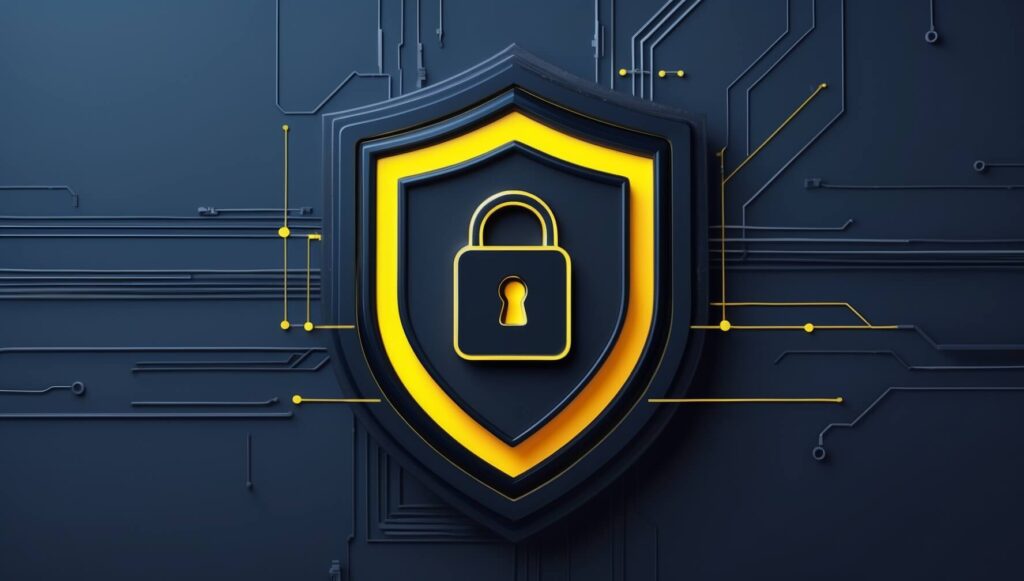
Conclusion – The Simple Way to Protect Your Privacy
Protecting your privacy doesn’t require complicated tools or deep technical knowledge. It starts with understanding how your connection works, recognizing when a VPN can help, and building small habits that keep your information more secure. When you take these steps consistently, your online experience becomes safer, clearer, and more in your control.
A VPN is just one part of that picture. It supports your privacy by adding an extra layer of protection, especially in situations where your connection isn’t fully secure. Pairing it with simple habits — like strong passwords, regular updates, and cautious browsing — creates a strong foundation for your digital life.
The goal isn’t perfection. It’s awareness. When you understand how these tools fit together, you can make smarter decisions, avoid unnecessary risks, and enjoy the internet with greater confidence and peace of mind.
To keep learning in a simple, beginner-friendly way, you can visit our trusted privacy resource for more cybersecurity guidance.

